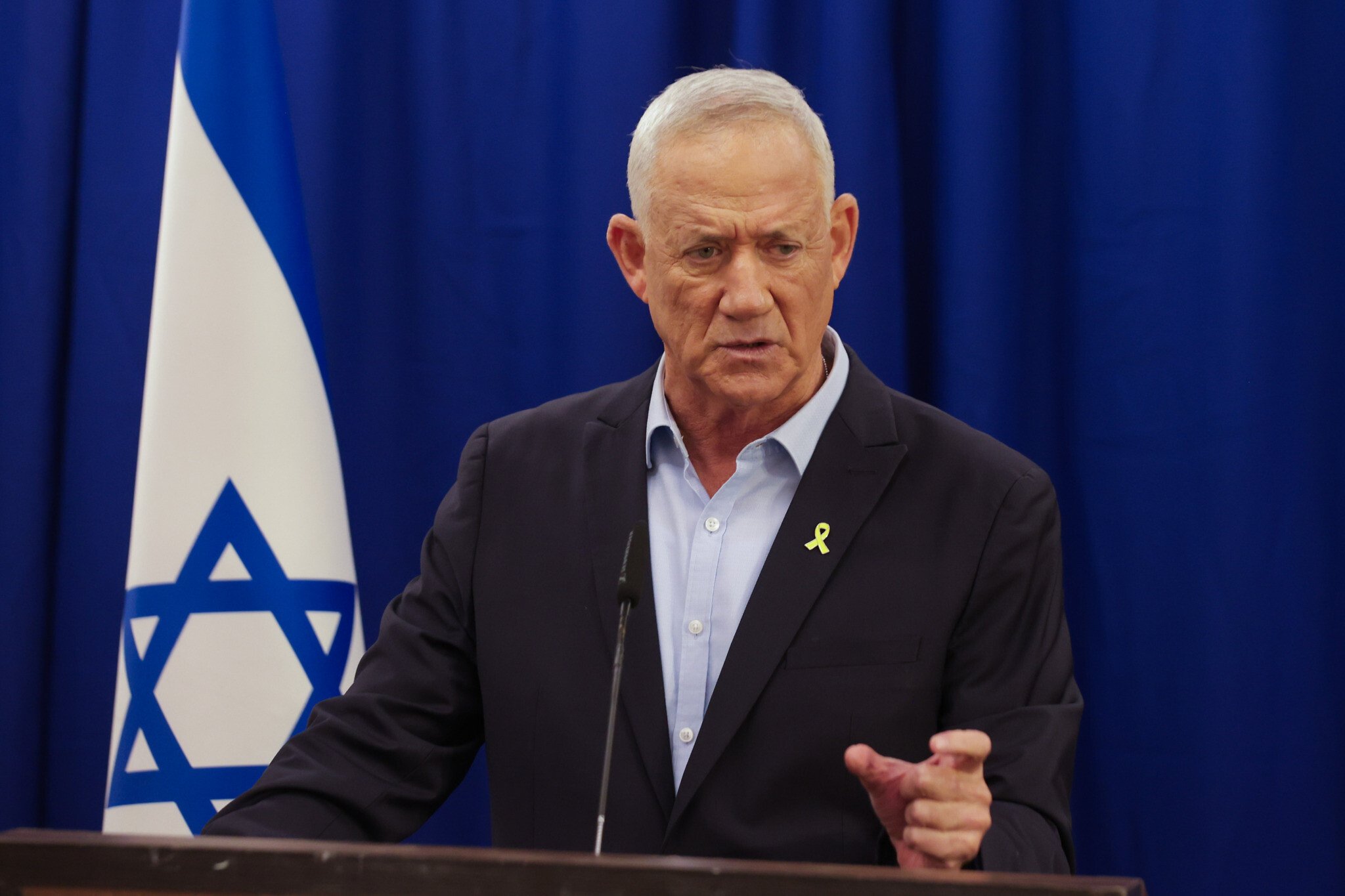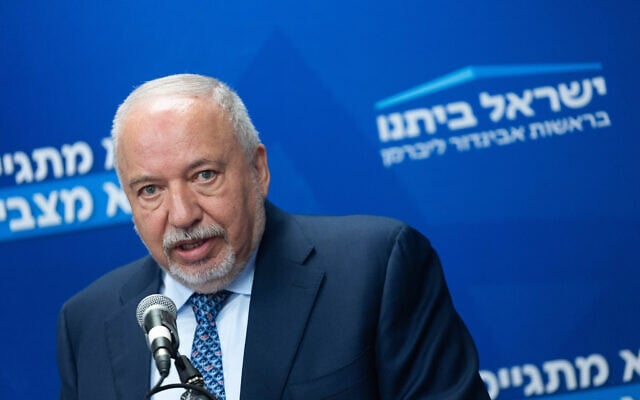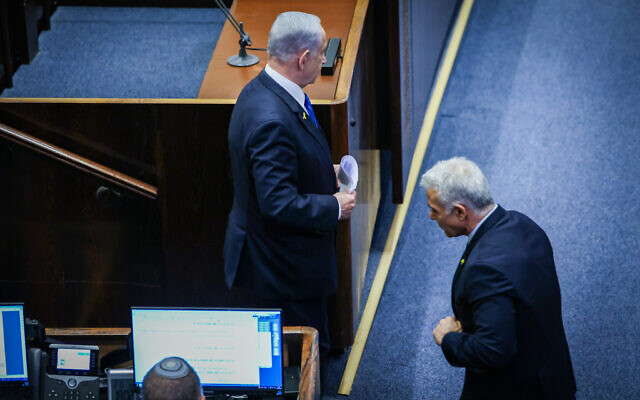



MK Benny Gantz, on Saturday evening, called on Prime Minister Benjamin Netanyahu as well as fellow opposition leaders to establish a temporary emergency government tasked with tackling two of Israel’s most urgent challenges: securing the release of all remaining hostages held by Hamas in Gaza and advancing legislation on the ultra-Orthodox military draft.
The Blue and White-National Unity chairman made the offer at a primetime press conference, addressing Netanyahu, Opposition Leader Yair Lapid, and Yisrael Beytenu chief Avigdor Liberman.
Evoking Holocaust imagery to describe the state of the captives, Gantz warned that “the hostages are in mortal danger” and that military reservists “are collapsing under the burden” after nearly two years of war since Hamas’s October 7, 2023, onslaught.
He proposed forming what he termed a “government of hostage redemption and equality in the [military] burden,” with a clear six-month mandate, after which the country would head to new elections — moving up the current timetable from October 2026.
Making it clear he believed Netanyahu was currently avoiding a Gaza deal due to political pressure from his far-right allies rather than valid security considerations, Gantz called on him to ditch them and think first of the nation.
“In Hamas’s tunnels, there are 50 hostages… every hostage whose life is at risk could be our son, your son,” Gantz said, underscoring the urgency of reaching a political framework that could enable a deal with Hamas.
The former defense minister emphasized that his initiative was not about bolstering Netanyahu’s political standing, but about addressing two national crises.
To his critics on the center-left, he said, “I don’t want to save Netanyahu, but to save the hostages.”
Last week, as reports emerged that he was considering joining Netanyahu to pass a Gaza deal, his party responded to a Walla news article calling Gantz a “useful idiot,” saying: “An idiot, and not too useful, is someone who hates Bibi more than they want to bring back the hostages.”
Less than an hour after Gantz’s press conference, Liberman’s Yisrael Beytenu party issued an ambivalent response.
“Yisrael Beytenu calls for all the hostages to be returned now, without conditions,” the party said in a statement. “The only government that we will be part of is a wall-to-wall Zionist government, and we won’t take part in any spin.”
Liberman has publicly clashed with Netanyahu over security policy, the ultra-Orthodox draft, and accusations of corruption in recent years.

Gantz’s proposal marks the third time in recent years that he has proposed entering a unity arrangement under Netanyahu. In 2020, amid the COVID-19 pandemic, he joined an emergency unity government that collapsed after less than a year, after Netanyahu was widely seen to have wriggled out of his power-sharing agreement with Gantz.
Gantz’s decision to join Netanyahu’s government in 2020, despite his campaign promise not to, cost him significant public support. Many of his voters felt betrayed, and the then-Blue and White alliance quickly fell apart as Yair Lapid’s Yesh Atid and Moshe Ya’alon’s Telem broke away. Left with a smaller faction, Gantz saw his party’s standing in the polls collapse.
He again joined Netanyahu in the aftermath of Hamas’s October 7, 2023, onslaught, when his party, now titled National Unity, entered a wartime emergency government. That arrangement ended in June 2024, when Gantz withdrew, citing frustrations with Netanyahu’s management of the conflict and lack of a clear strategy for the war.
Beyond saving the hostages, key to Gantz’s new proposal is the contentious issue of mandatory military service for ultra-Orthodox yeshiva students. Israel’s coalition, heavily reliant on the support of Haredi parties, has resisted sweeping reforms to the decades-old exemption system. Critics argue that the arrangement unfairly burdens non-Haredi Israelis, particularly at a time when tens of thousands of reservists have been mobilized for extended periods since October 7.

Gantz framed his initiative as an opportunity to legislate a more equitable system while addressing the mounting social and military strain on IDF reservists. By setting a six-month timeline, he emphasized that the emergency government would have a narrow focus before returning power to the voters.
It remained unclear how Netanyahu or Lapid would respond to Gantz’s proposal. Lapid has in the past called for broad national unity but has been reluctant to join a government under Netanyahu.
Gantz’s gambit comes as pressure intensifies on the government to reach a deal for the remaining hostages in Gaza, and as the IDF grapples with the long-term sustainability of its reserve system.
